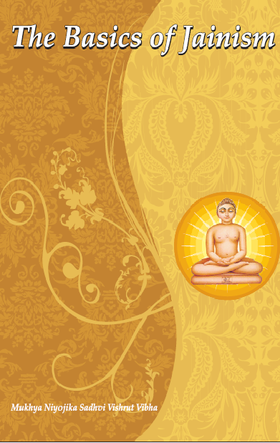The world in which we live is mysterious. Philosophers throughout the ages have reflected on this mystery and put forward many theories. Regarding this, Jain philosophy too has its own viewpoint. It deserves serious consideration from a logical and philosophical perspective. While considering the theory of the creation of the world, we can reflect on when, how, and by whom it was formed.
There are many philosophical traditions that claim that the world was created by God and some traditions oppose this view. According to Jain philosophy, this world has evolved only by transformation and is not a creation. It states that a substance is neither created nor can it be destroyed. It only undergoes a change in form. This transformation is called srsti. Substances are not created but are formed through the universal laws of nature.
According to Jain philosophy the world is not created. It has neither a beginning nor an end. Therefore the questions of who created it, and when and how it came into being, do not arise.
If we accept that somebody made the universe, many logical questions arise. If, for instance someone is the creator, it follows that it is created out of something other than the creator. If both are separate from each other, then does the creator live in this world or somewhere else? If the creator is not within this world, where does he come from? Is he from another world, separate from this cosmos? It provides no answer to the nature of both God and the world. God is presumably a conscious being and the world contains both conscious and unconscious elements. From where did these unconscious things come into being? If we accept that the world was created, then we will have to admit that something foreign existed from which or by which it was created. When a potter prepares a pitcher, he brings the soil from the mines and then shapes it into a pot. Where did God get the materials for making the world? What is the root cause of this world? What is the root cause of creation? These are the questions that have been under discussion since time immemorial.
According to Samkhya philosophy, only physical matter (Prakrti) is subject to change or transformation, consciousness is not. Creation therefore, depends solely on prakrti.
According to Jain philosophy, basically there are two fundamental substances i.e. soul and non-soul. It also states that the amount of substances remain the same. They do not increase or decrease. They undergo change, however, and that change is of two types (1) Sahetuka, (2) Nirhetuka.
In this world soul and matter are intimately related. This intimacy can be apprehended by the fact that the entire visible world is merely the discarded bodies of the soul. Each material had some day, at some time, been the body of any soul. It could have been the body of earth, water, plant, or higher beings too. Thus the vividness in the universe comes from the interaction of soul and matter.
In the field of logic, the principle of causality is supreme. Every effect has a cause. Creation is an effect and therefore there must be some cause of it. Because of this, people believe in a creator, God. The existence of God is, therefore, inferred. Some philosophers establish the existence of God from the necessity of finding a cause for the effect of creation. They argue that there must be some designer behind creation.
From the perspective of Anekantvada, the causal argument offered for the existence of God is not a strong one. God need not be a material cause nor the efficient cause of creation, since there are many effects which appear without a creator. For this reason, it is not essential that we affirm efficient causes in every case of production. The appearance of a cloud in the sky is certainly an effect but one cannot say that a conscious agent produced it. Clouds appear only as a result of certain natural phenomena.
The principle of an efficient causation is not universal either. As mentioned above, some happenings have a creator but some have no creator. Those phenomena that appear in a natural way are beyond the concept that every creation has a creator.
The question arises as to whether creation proceeds from a state of being or non-being. According to Anekantvada both being and non-being are necessary for explaining creation. As discussed above, substance and modes are intrinsic to all things. Since substances have a three-fold existence - past, present and future- a substance cannot be destroyed nor can it be created. However, discussing the existence of things from the perspective of their modes, a state of non-being can be produced and a state of being (a particular mode) can be destroyed. While taking the view point of substance, we can say that no new substances can be created and those which exist cannot be destroyed. This principle does not apply to the modes of a substance, whose very nature is that of change. This is the doctrine of eternal modification (parinami-Nityatvavada) in which, according to Jain philosophy, all things - animate and inanimate - are both eternal and subject to transformation.
